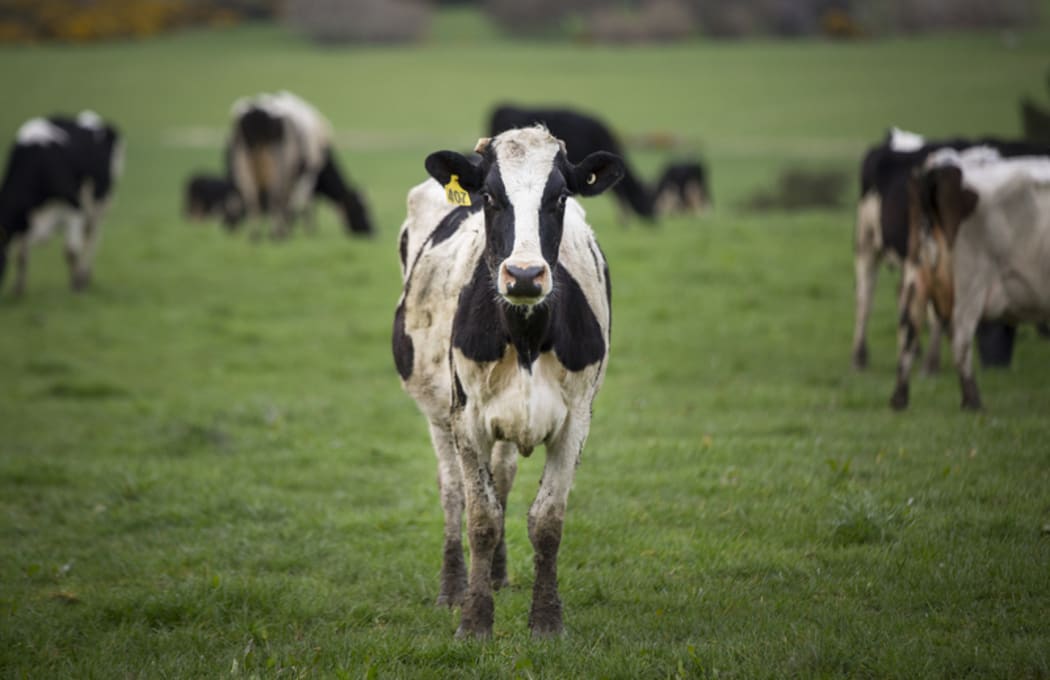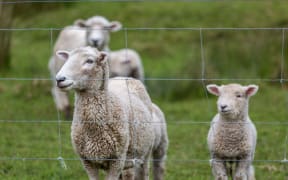An iwi advisor is warning National's plan to sell state-owned land to young farmers will be under intense scrutiny.

National would introduce lease-to-buy arrangements for selling some Landcorp farms to young farmers. Photo: RNZ / Rebekah Parsons-King
National has announced it would sell some state-owned Landcorp farms through lease-to-buy agreements over five to 10 years if re-elected. It said Treaty of Waitangi claims would be respected.
Landcorp has confirmed it only owns 85 farms, not 140 as National primary industries spokesperson Nathan Guy said yesterday. However it operates 140, and has staff on all of those.
Of those 85 farms, Ngāi Tahu has the right of first refusal for most of the 45 in the South Island - and, of the 40 in the North Island, a number are involved in some stage of treaty claims.
Iwi advisor Willie Te Aho said National needed to sort that out first or risk a backlash from Māori.
He said one disputed Landcorp sale he was involved with ended up in the Supreme Court.
"Until they [the government] work with us, and ensure our treaty rights to that land are protected, we would have no choice, as was the case with Ngāti Whakahemo, to oppose those kinds of transactions."
Mr Te Aho said iwi approached the government at Waitangi in 2014 to ensure treaty claims would be fully resolved before farms were sold, but they did not receive a response.
Mr Guy told Morning Report he advised Landcorp before the announcement, but had not spoken to iwi.
"The media were going to be heading to Landcorp first, and I felt it was very necessary that we at least forewarn them that we were coming out with this initiative yesterday. In terms of iwi, we have a very constructive working relationship through the Iwi Leaders' Forum, and will be engaging with them through this policy process."
When asked why he did not tell iwi in advance, Mr Guy said the party had done a lot of work on the policy and would consult the Iwi Leaders' Forum.
"This is an election commitment that we've made, we don't go and share our election manifesto with anyone."
The Māori Party said the land should be offered to iwi for a nominal price.
Other reaction
Massey University Young Farmers chairman James Robertson also had reservations about the policy, saying it would be a great opportunity for some but wouldn't address the long-term problem of unaffordable land for many young families.
Mr Robertson, who grew up on a family-owned dairy farm in Waikato, said buying his own farm one day was a difficult prospect.
"We used to milk 200 cows, but Mum and Dad have recently sold up and retired. I've got an older brother and a younger brother so succession was always going to be a wee bit of an issue with all of my brothers being keen on farming."
Now in his final year of studying towards a bachelor's degree in agricommerce, he said a career in the wider industry allowed him to keep his options open, now saving up to get into farm ownership was becoming harder.
"My main question would be with that ballot system, how do you decide? And just because you're offering it to 100 [farmers] in the next few years, what about those people in five years when they've got a family and are wanting to go farming?
"I just wonder if it's a short-term solution to a long-term problem."
The median price per hectare for all 392 farms sold in the three months to July this year was a little over $27,000, according to Real Estate Institute of New Zealand figures.
The median price various enormously between dairy, grazing, finishing and horticulture. A dairy farm's median price per hectare in that time was $36,332 while horticulture's median price was $149,251 per hectare.
Christchurch agri-business accountant Pita Alexander said National's plan would give young families a hand up.
"Outside of outright farm succession, that is Mum and Dad owning a farm, it is very hard for a young couple without a big lump of cash to get a start in farming today.
"It would be very hard, not impossible. Some have done it but it would be very difficult," Mr Alexander said.
He supported the idea, but Landcorp still played an important role in New Zealand's agriculture sector because of its scale, he said.
"They've done some very good lamb trading arrangements with our freezing works. They tend to be doing some direct marketing more than individual farmers.
"But I still feel from a farming point of view, there's 100 [couples] here who could go farming and I think they could do just as well as Landcorp and in some cases better," he said.
The Green Party wants the government to hold on to the farms, saying Landcorp has made real progress in sustainable farming and reducing pollution in recent years.
The party is also concerned farms could end up in overseas hands.
However, National leader Bill English said the policy's criteria would rule out foreign ownership, because those applying for the leases would need a record of farming in New Zealand and would have to lease the land for a minimum of five years.





